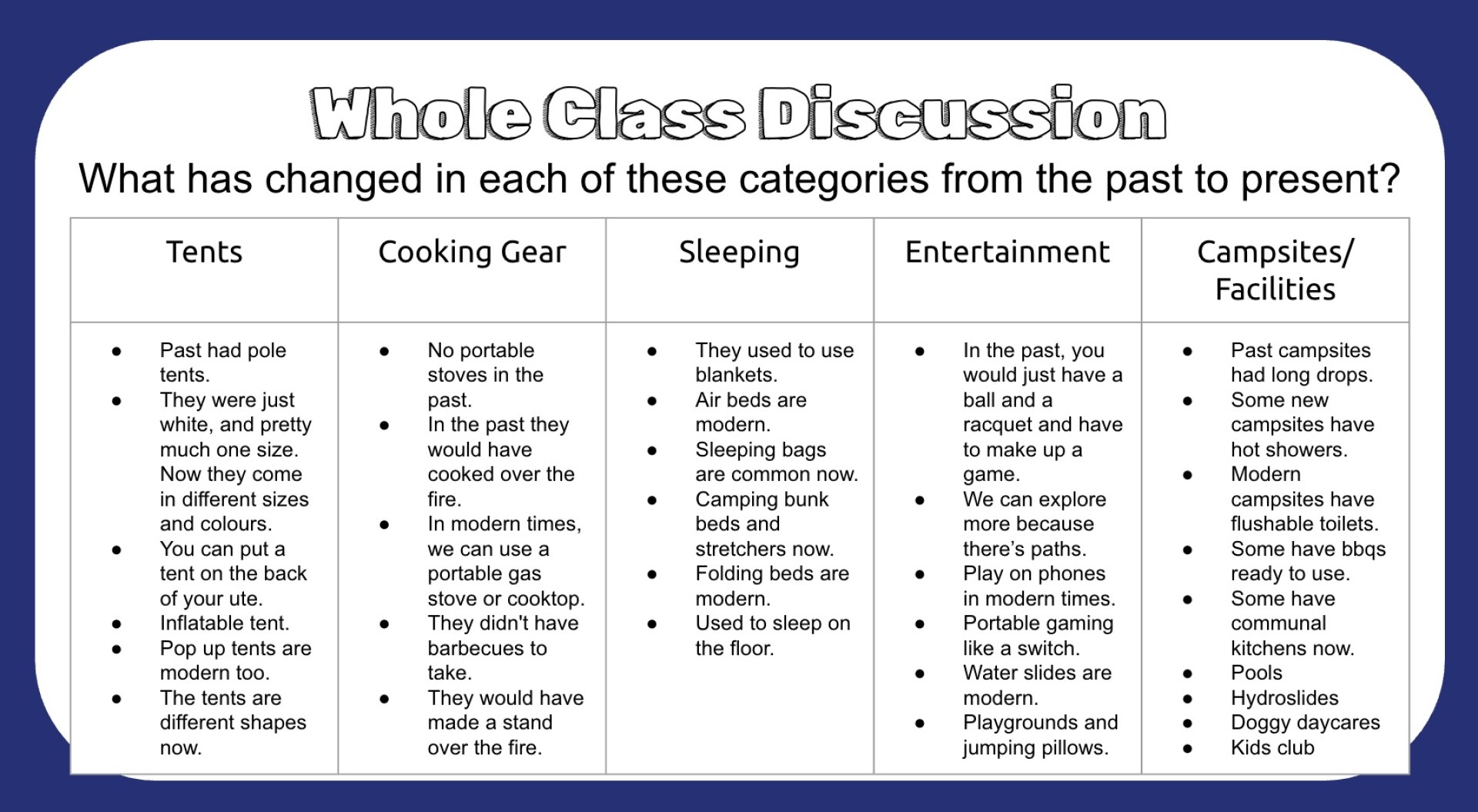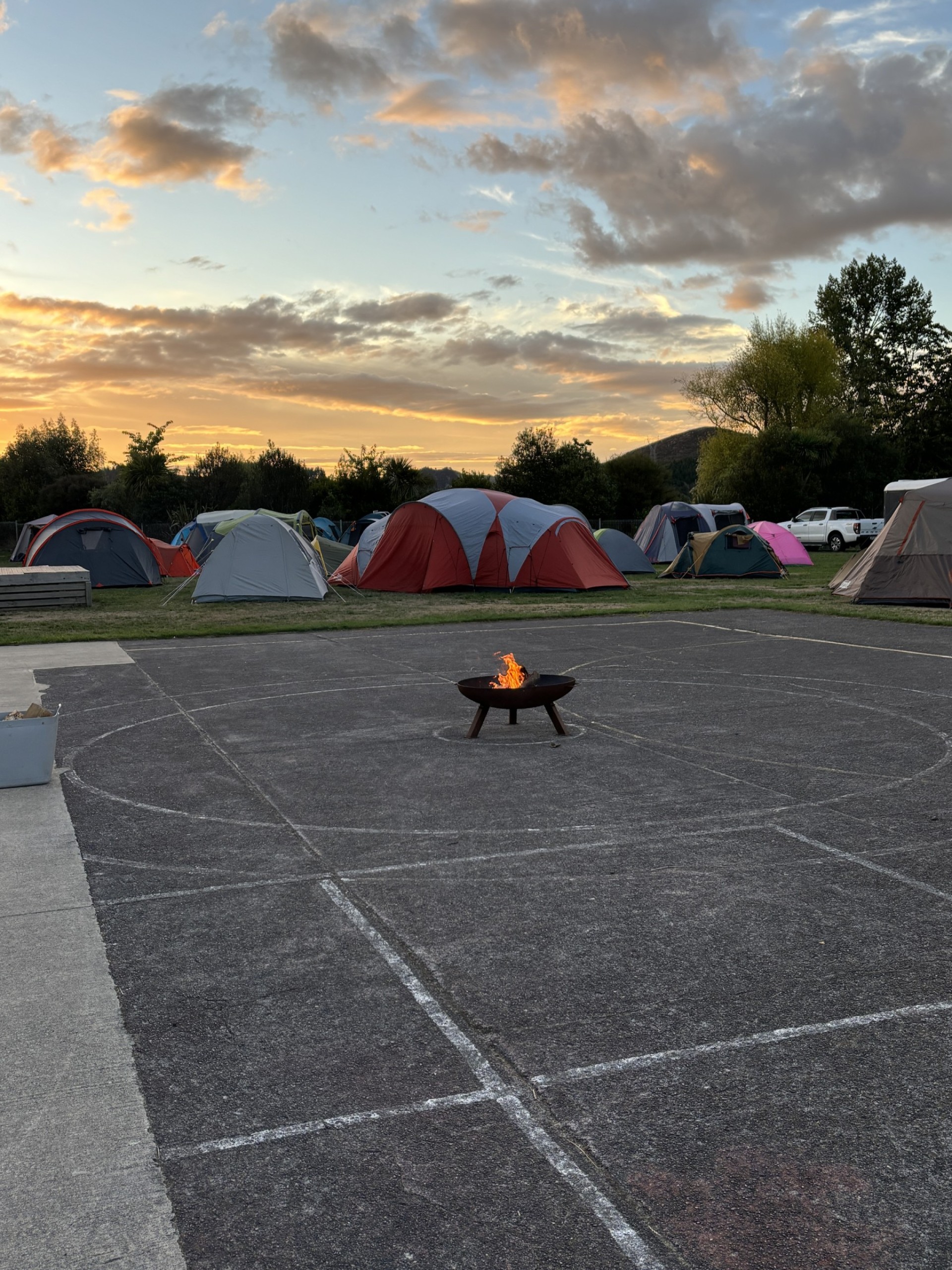The big question was: Have things really changed that much?
The combined exploration began with the question, “What is a kiwi kid?”. A lively discussion followed, with some students wondering whether being a kiwi kid meant you had to be born in New Zealand. Eliya shared during this that she wasn’t a kiwi kid because she was born in the Philippines, prompting others to agree, who also were not born in New Zealand.
As the discussion continued, Eliya, Winter and Linaya began to realise they had already been part of many Kiwi Kid activities like singing Kiwi Kids songs, attending Kapa Haka, playing games in the playground and learning about the local area through te ao Māori.
Another common theme was the experience of camping with families in various locations across Aotearoa, which many students agreed was the ultimate kiwi kid activity. Year 5 camp for many, was their first time camping or even staying away from home. Eliya said this would be her first night away from her parents.
Part of the learning process was to compare modern camping experiences to those of the past.
The class agreed on a question to take home whānau to find out more by the next day. The question was “How has camping changed over the last 50 years?” All the information gathered from home was categorised into 5 subsections including tents, cooking gear, sleeping, entertainment and camp sites/facilities.
I used to think that if you were born in New Zealand, that’s what made you a kiwi kid. I also thought that in the past, people used the bush as a toilet. But then I learned that in the past, people ate Weet-Bix, went fishing, and did a lot of tramping, just like we do now! We compared the past and present in a Venn diagram.
Grayson L shared that he thought 50 years ago, he didn’t even think tents had poles. After realising that 50 years ago was only 1975, he discovered that camping once involved heavy canvas tents that indeed used poles to stay up. Cooking over open fires, and using paper maps was also common.
Whereas currently, lightweight tents, gas stoves, and digital maps make the experience more convenient, though some families still prefer the traditional approach. While camping may have evolved, the connection to nature and the adventure of sleeping under the stars remains unchanged as a kiwi kid favourite.
I learned that tents come in all shapes and sizes. In the past, they probably used string tents with just a few poles. Our cooking gear is also different. My dad said they used to cook over a fire, but now we use gas cookers. Dad slept on the ground with a sleeping bag, but we sleep on stretchers with a sleeping bag now.
Through the discussion and being able to compare and contrast current camping experiences to the past allowed the students to gain a deeper understanding of how being a kiwi kid camping. has both changed and remained the same over time. When setting up the tents for camp, a real life example was watching some families struggle with interconnecting poles and following instructions versus the blow up tent that went up in minutes.
Eliya felt like this was her first real kiwi kid experience, and she proudly declared at the end of camp, “I’m a real kiwi kid now!”




Comments
No one has commented on this post yet.